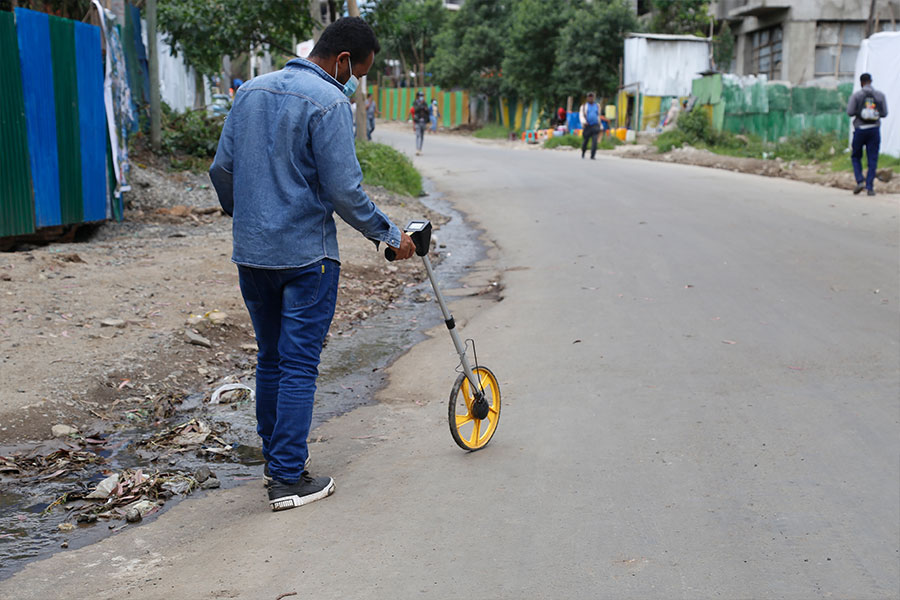
Aug 31 , 2019
By Tibebu Bekele
In February 2013, blaring headlines proclaimed “Ethiopia launches Africa’s first unified utility billing system”. It was an innovative Public Private Partnership (PPP) project that was supposed to change the hitherto cumbersome process of residents having to pay utility bills in at least three different offices each month. Electricity, water and telephone bills all had to be paid to different government utility companies on different days of the month. It was a nightmare to millions of Addis residents. This was now going to be simplified into a one-stop activity. No wonder everybody was giddy with excitement.
The project was successful overcoming its teething problems at the start. It served the city dwellers well. It even added traffic violation payments into the mix. The long lines disappeared. No middle men were necessary to handle traffic violation payments anymore. Technology solving a long-standing problem, a progressive government providing a digital solution to its service delivery problem. Amen.
Fast forward six years. The lines are back. People are now having to line up at 5am to pay electric bills. Why? Because the government decided to take back that service. That is why.
They feel they now have the capacity to deliver this service. They apparently do not. Why else would people line up in the chilly Addis morning otherwise. The government says they are giving this service to the Commercial Bank of Ethiopia. I guess the irony is lost on them. That is a dinosaur of a bank, both in its age and size. Its customer service follows its nature - archaic and slow. They could not have picked a worse institution to handle a technology-based service.
Now, the more pertinent question is why did they have to fix a system that was not broken. It is not like they have a shortage of things that are broken. The electric utility is so broken, it was rationing power. The bill collection that was outsourced was not the problem. The same goes for the other giant government companies. Leaving what is working alone for now and focusing their attention on what is truly broken is the logical step. But I guess governments are not known for doing what is logical. They are better at doing what is whimsical.
Policy decisions seem to be made quite quickly, almost arbitrarily, and then reversed just as suddenly. It would help greatly to start by identifying real problems. The problem identification does not seem to include the people that are affected. People know what is making their lives difficult. They will tell anyone that asks what they would like to see fixed. Concentrating limited public resources in solving problems that are actually identified by citizens affected by them will help the government in so many ways. It reduces public discontent. It makes for efficient budget utilisation. Such projects have better sustainability as they address the real felt needs of the community.
The other neglect often seen is the lack of wide dialogue in exploring policy alternatives. Even in the rare cases where problem identification is completed correctly, very rarely will one see a proper dialogue that is inclusive of all stakeholders. A select committee in some government ministry backroom will finish up all the work and organise a half day “consultative meeting”. That is a public relations gimmick, not dialogue. Sure, a real consultative process is expensive and it takes time. But the alternative is costlier.
The answer to all this is putting the average citizen at the centre of the policy making process, both in identifying what to fix and how to fix it. That will save the government from trying to reinvent the wheel.
PUBLISHED ON
Aug 31,2019 [ VOL
20 , NO
1009]


Life Matters | Jun 22,2024

Covid-19 | Apr 04,2020

Radar | Oct 09,2021

Viewpoints | May 15,2021

In-Picture | Apr 27,2025

My Opinion | 132151 Views | Aug 14,2021

My Opinion | 128561 Views | Aug 21,2021

My Opinion | 126482 Views | Sep 10,2021

My Opinion | 124091 Views | Aug 07,2021





Dec 22 , 2024 . By TIZITA SHEWAFERAW
Charged with transforming colossal state-owned enterprises into modern and competitiv...

Aug 18 , 2024 . By AKSAH ITALO
Although predictable Yonas Zerihun's job in the ride-hailing service is not immune to...

Jul 28 , 2024 . By TIZITA SHEWAFERAW
Unhabitual, perhaps too many, Samuel Gebreyohannes, 38, used to occasionally enjoy a couple of beers at breakfast. However, he recently swit...

Jul 13 , 2024 . By AKSAH ITALO
Investors who rely on tractors, trucks, and field vehicles for commuting, transporting commodities, and f...

Jul 12 , 2025
Political leaders and their policy advisors often promise great leaps forward, yet th...

Jul 5 , 2025
Six years ago, Ethiopia was the darling of international liberal commentators. A year...

Jun 28 , 2025
Meseret Damtie, the assertive auditor general, has never been shy about naming names...

Jun 21 , 2025
A well-worn adage says, “Budget is not destiny, but it is direction.” Examining t...

Jul 13 , 2025 . By YITBAREK GETACHEW
The Addis Abeba City Revenue Bureau has introduced a new directive set to reshape how...

Jul 13 , 2025 . By BEZAWIT HULUAGER
Addis Abeba has approved a record 350 billion Br budget for the 2025/26 fiscal year,...

Jul 13 , 2025 . By RUTH BERHANU
The Addis Abeba Revenue Bureau has scrapped a value-added tax (VAT) on unprocessed ve...

Jul 13 , 2025 . By NAHOM AYELE
Federal lawmakers have finally brought closure to a protracted and contentious tax de...